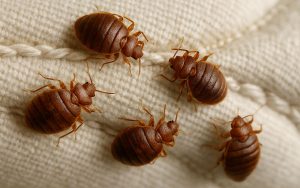
Your kitchen provides everything pests need to thrive: food, water, and warm hiding spots. Unfortunately, this makes it the most likely place in your home to develop pest problems. The good news is that most kitchen pest issues can be prevented with consistent habits and smart storage strategies.
Kitchen pests don’t just create disgust and inconvenience. They contaminate food, spread bacteria, and can trigger allergies and asthma. Some pests multiply so quickly that a small problem can become a major infestation in just weeks. Prevention is always easier and cheaper than elimination.
Understanding Your Most Common Kitchen Enemies
Ants are perhaps the most persistent kitchen invaders. Once they find a reliable food source, they leave chemical trails that guide other ants directly to your counters and cabinets. Sugar ants and grease ants are the most common varieties, and they’re active year-round in most climates.
Cockroaches pose the biggest health risk in kitchens. German cockroaches, the most common indoor species, multiply rapidly and carry bacteria that cause food poisoning. They hide in warm, moist areas during the day and come out at night to feed on crumbs and spills you might not even notice.
Pantry pests include various beetles, moths, and weevils that infest stored grains, cereals, and baking ingredients. These insects often enter your home inside products you buy at the store, then spread to contaminate other foods in your pantry.
Creating a Clean Foundation
The most effective pest prevention starts with consistent cleaning habits. Wipe down counters after every meal and sweep floors daily to eliminate crumbs that attract ants and roaches. Pay special attention to areas around appliances where food particles tend to accumulate.
Clean inside your microwave, toaster, and other small appliances regularly. Food residue in these areas provides ongoing pest attractions that many homeowners overlook. Don’t forget to clean behind and under appliances during your weekly deep cleaning sessions.
Manage your garbage carefully by using tight-fitting lids and taking out trash before it overflows. Wash garbage cans periodically to remove sticky residues that attract pests even when the can appears empty.
Smart Storage Solutions
Proper food storage is your strongest defense against kitchen pests. Transfer cereals, flour, sugar, and other pantry staples into airtight containers as soon as you bring them home. Glass jars and plastic containers with secure lids prevent both pantry pests and ants from accessing your food.
Store ripe fruit in the refrigerator rather than on counters, where it attracts fruit flies and other insects. Keep pet food in sealed containers and clean up any spilled kibble immediately.
Organize your pantry so you can easily see all stored items and check for signs of pest activity. Use older products first and check expiration dates regularly to avoid keeping infested items longer than necessary.
Moisture Control Matters
Most kitchen pests need water to survive, so eliminating moisture sources is crucial for prevention. Fix leaky faucets and pipes immediately, and check under sinks regularly for hidden leaks that create ideal cockroach breeding conditions.
Use exhaust fans when cooking and washing dishes to reduce humidity levels. Wipe down wet surfaces and don’t leave standing water in sinks, especially overnight when cockroaches are most active.
Check around dishwashers, refrigerators, and other appliances for water accumulation. Even small amounts of moisture can support pest populations if left unchecked.
Sealing Entry Points
Inspect your kitchen for cracks and gaps where pests can enter. Caulk around baseboards, cabinet edges, and areas where pipes enter walls. Install door sweeps on exterior doors and repair damaged window screens.
Pay attention to areas around plumbing fixtures and electrical outlets, where small gaps often provide pest entry points. Steel wool pushed into larger gaps works well because pests can’t chew through it.
When Prevention Isn’t Enough
Sometimes despite your best efforts, pest problems develop beyond what you can handle with cleaning and storage improvements. According to pest control experts like those at On Demand Pest Control, a Florida-based extermination company, certain warning signs indicate when professional intervention becomes necessary rather than continuing with DIY methods.
Call professionals if you’re seeing pests during daylight hours, finding large numbers of droppings, or discovering pest activity that returns quickly after your cleaning efforts. Extensive cockroach infestations and pantry pest problems that affect multiple food items usually require professional treatment to eliminate completely.
Professional pest control services have access to more effective treatments and can identify pest entry points you might miss. They also provide ongoing monitoring to prevent future infestations.
Building Long-Term Success
Successful kitchen pest prevention requires consistency rather than perfection. Focus on daily habits like cleaning up spills immediately and storing food properly rather than trying to achieve a spotless kitchen at all times.
Inspect your pantry monthly for signs of pest activity, and rotate stored foods regularly to use older items first. Seasonal deep cleaning helps you stay ahead of pest problems before they become serious.
Remember that prevention is an ongoing process, not a one-time task. The habits you build today will keep your kitchen pest-free and your family healthy for years to come.








